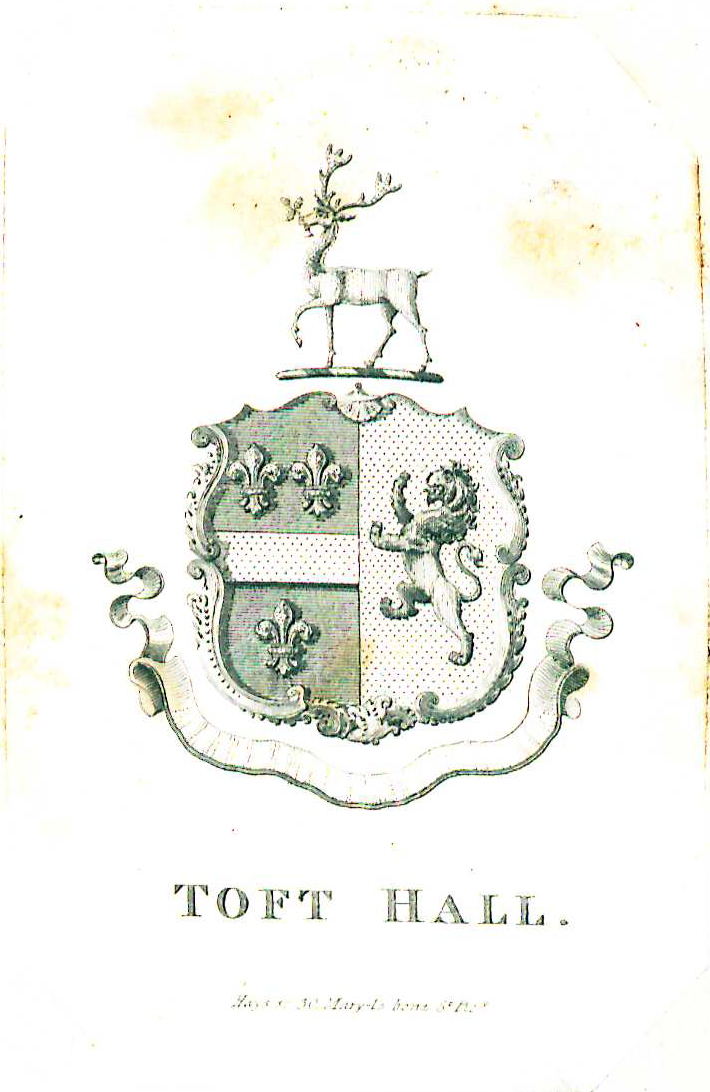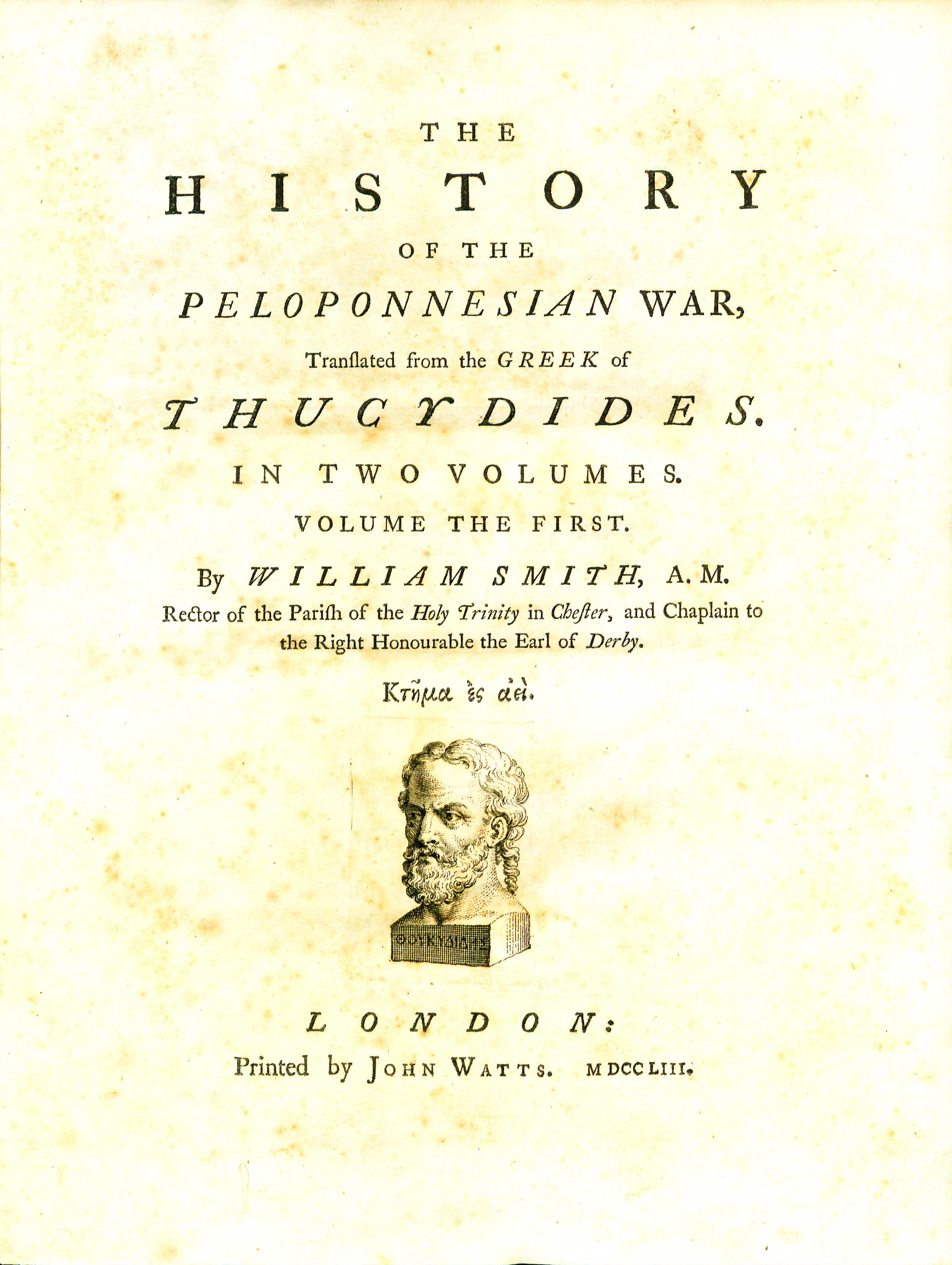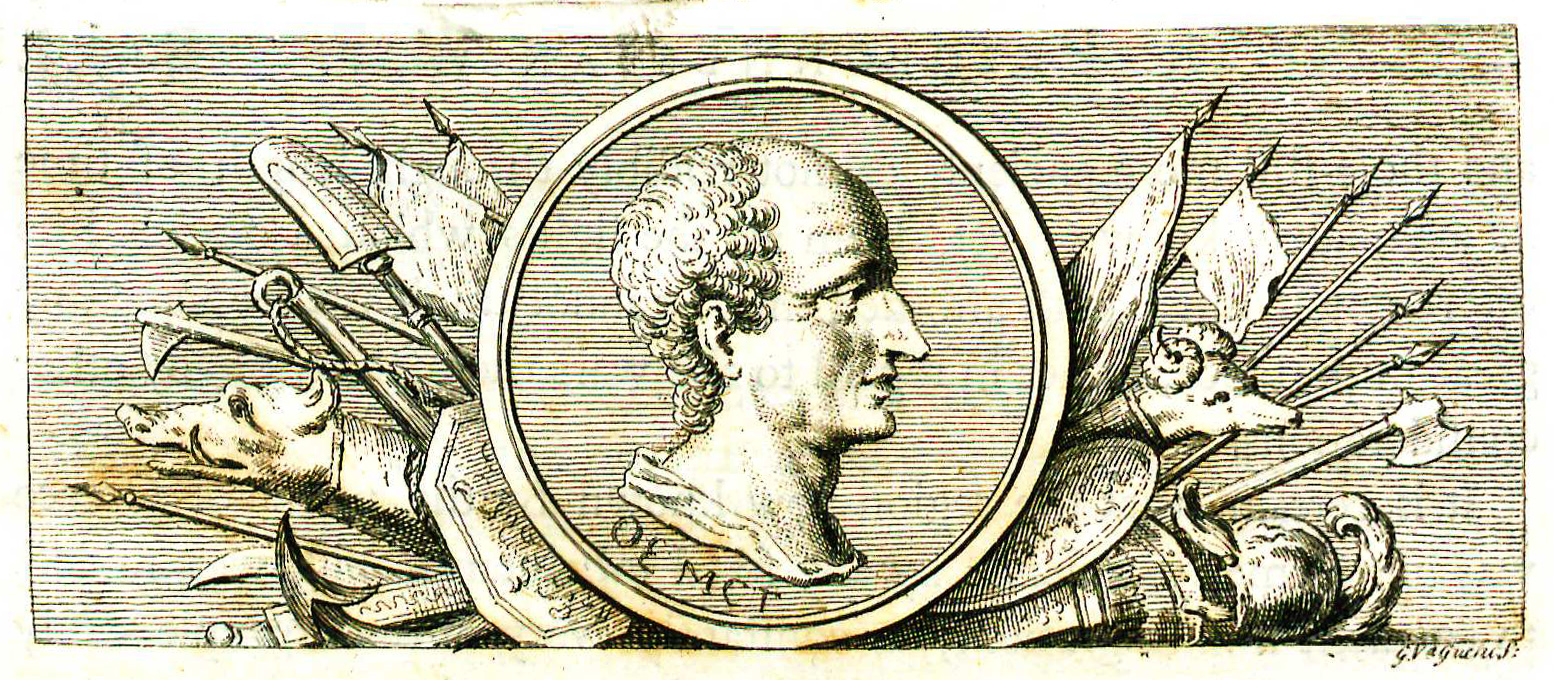The History of the Peloponnesian War
by Thucydides
| The History of the Peloponnesian War | |
|
Title page from The History of the Peloponnesian War, George Wythe Collection, Wolf Law Library, College of William & Mary. | |
| Author | Thucydides |
| Translator | William Smith |
| Published | London: Printed by John Watts |
| Date | 1753 |
| Language | English |
| Volumes | 8 parts in 2 volumes bound as 1 volume set |
| Desc. | 4to (25 cm) |

Thucydides (c. 460 BCE–c. 395 BCE) has gone down in history as one of the best ancient historians, despite the fact that, and possibly even because, he only wrote one book: History of the Peloponnesian War. He was born sometime between 460 and 455 BCE, and served as a general in 424 BCE. He likely died around 400 BCE.[1] The History consists of eight books roughly divided into five parts or themes which cover the war between Athens and Sparta (431-404 BCE) until the winter of 441/410 BCE. Continuations by other historians to complete Thucydides’ history of the war are now lost, and the original portions of the eight books are also not complete.[2]
Thucydides intended his history to be used throughout the ages as a guide for future and an instructive and accurate record of what he viewed as the most important war thus far in Greek history. In 424 BCE, as a general or strategos, Thucydides failed to save the valuable Athenian colony of Amphipolis from Spartan attack. As a result, he was exiled and did not return to Athens until 404 BCE. His absence from the bulk of the actual action of the Peloponnesian War inspired him to utilize his somewhat unbiased view “to gain first-hand information from both sides and to have a clearer perspective.”[3] Though Thucydides strived for “exactness,” he also used a great many speeches in his history, and admits himself that it was near impossible to have fully accurate speeches. In these situations alone, Thucydides allowed himself to trust his “historical imagination” in order to dramatically demonstrate “the workings of men’s minds and the impact of circumstance.” [4] His focus on accuracy is seen through the lack of divine explanations for any events, though his impartiality has been questioned especially in reference to his favorable view of Pericles and unjustifiably negative depiction of Cleon. Overall, the serious nature of the writing illuminates Thucydides’ focus on historical fact and analysis.[5]
Evidence for Inclusion in Wythe's Library
Listed in the Jefferson Inventory of Wythe's Library as Thucydides Eng. by Smith. 2.v. 4to. This was one of the titles kept by Thomas Jefferson. Both George Wythe's Library[6] on LibraryThing and the Brown Bibliography[7] list the 1753 edition published in London based on the copy Jefferson sold to the Library of Congress in 1815.[8] Jefferson's copy still exists but it includes no definitive ties to Wythe. There are "manuscript notes ... and pencil notes of a much later date" which may link the volume to Wythe. The Wolf Law Library added a copy of this edition.
Description of the Wolf Law Library's copy
Bound in full paneled calf with blind tooled decoration and expertly rebacked with original backstrip laid on. Has raised bands with the earlier label in gilt lettered morocco and all edges in red. Includes the bookplate of Toft Hall. Purchased from Roger Middleton Fine and Rare Books.
View this book in William & Mary's online catalog.
References
- ↑ "Thucydidēs" in Oxford Dictionary of the Classical World, ed. by John Roberts (Oxford: Oxford University Press, 2007).
- ↑ Ibid.
- ↑ "Thūcy'didēs” in The Oxford Companion to Classical Literature, ed. by M.C. Howatson (Oxford: Oxford University Press, 2011).
- ↑ "Thucydidēs" in Oxford Dictionary of the Classical World.
- ↑ "Thūcy'didēs” in The Oxford Companion to Classical Literature.
- ↑ LibraryThing, s. v. "Member: George Wythe", accessed on November 19, 2013.
- ↑ Bennie Brown, "The Library of George Wythe of Williamsburg and Richmond," (unpublished manuscript, May, 2012) Microsoft Word file. Earlier edition available at: https://digitalarchive.wm.edu/handle/10288/13433
- ↑ E. Millicent Sowerby, ""Catalogue of the Library of Thomas Jefferson 2nd ed. (Charlottesville: University Press of Virginia, 1983), 1:9 [no.17].
External Links
Read volume one of this book in Google Books.
Read volume two of this book in Google Books.

